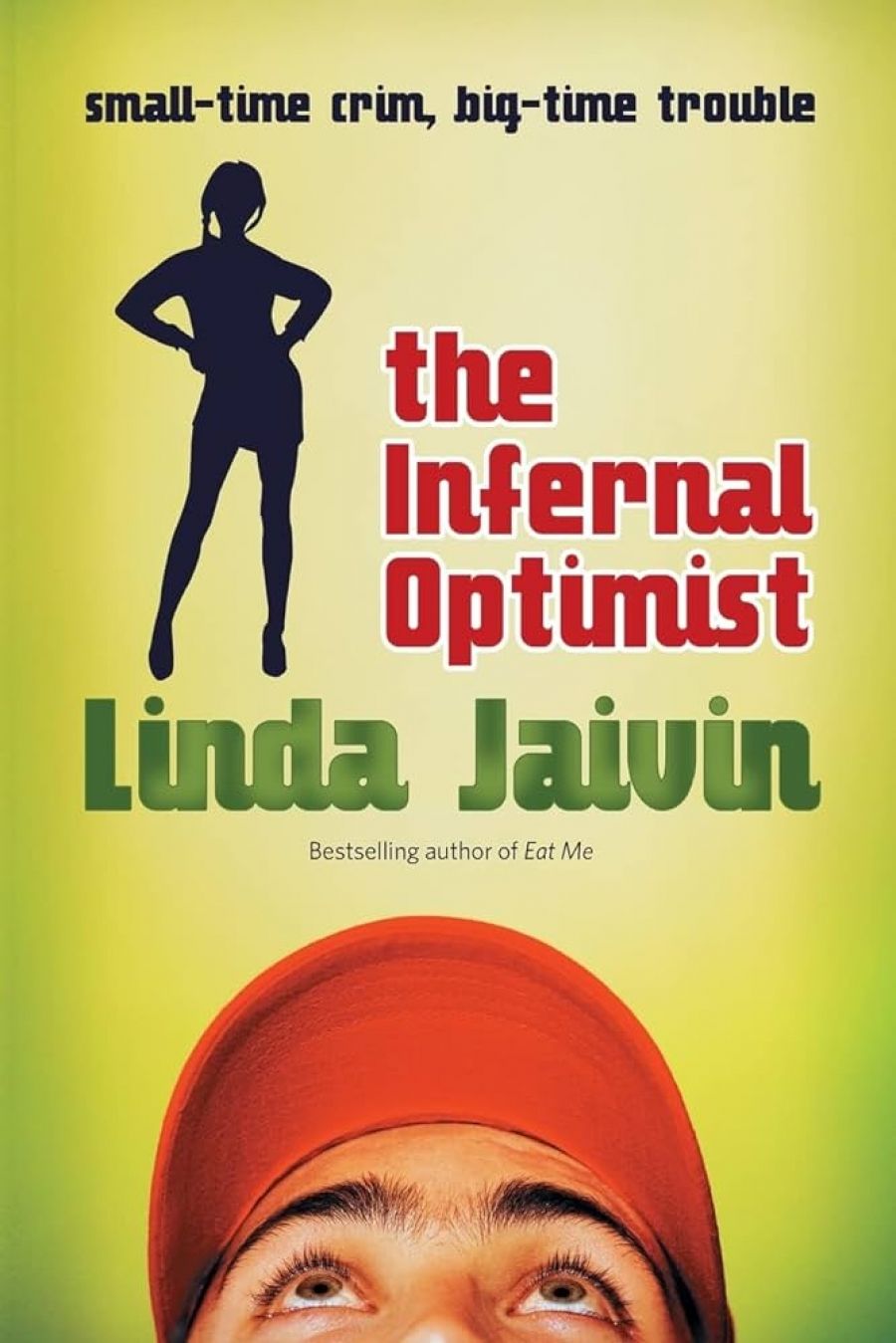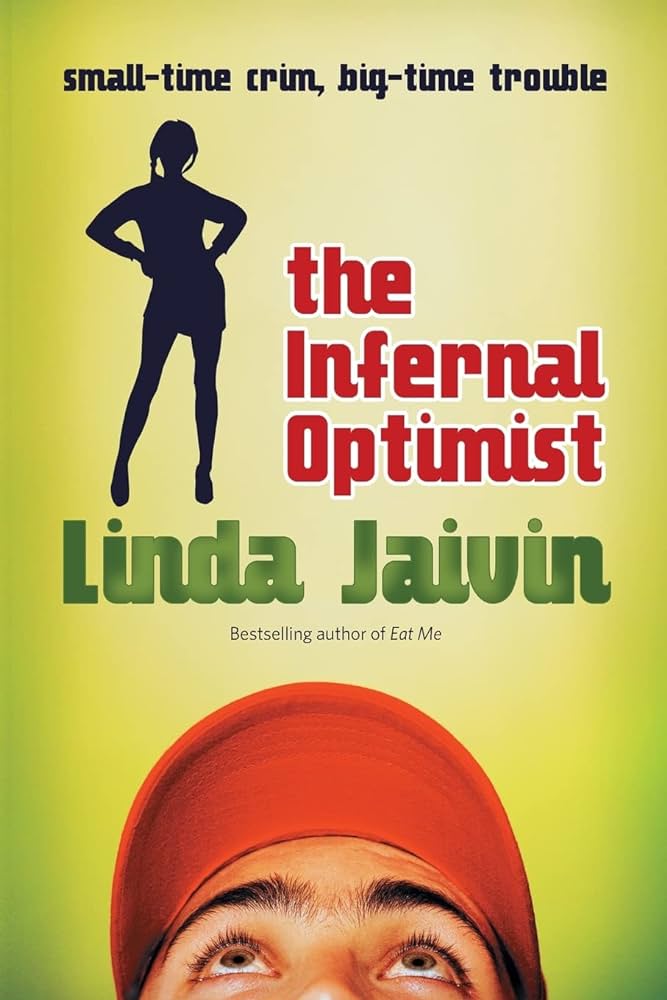
- Free Article: No
- Contents Category: Fiction
- Review Article: Yes
- Article Title: The armour-plated cause
- Online Only: No
- Custom Highlight Text:
There is every reason to admire this novel’s intent, but with the best will in the world I couldn’t recommend the result. Linda Jaivin’s current affairs comedy about the Villawood Detention Centre is so conscious of its pedagogic goals that it fails to offer a decent story. And it’s not funny. Believe me, I wanted to like it. Jaivin is a terrific writer with an enviable range, capable of the witty, surrealist smut of Eat Me (1995) and the kind of nuanced cross-cultural analysis that underpinned The Monkey and the Dragon (2001), her undervalued biography of Chinese rock’n’roll dissident Hou Dejian.
- Book 1 Title: The Infernal Optimist
- Book 1 Biblio: Fourth Estate, $27.95 pb, 329 pp, 0732282756
- Book 1 Cover Small (400 x 600):

- Book 1 Cover (800 x 1200):

The single worst failing is the narrative voice. Our protagonist, amiable crim Zeki Togan, is the kind of good-natured idiot who has plagued so many Australian sitcoms, mining laughs from his cluelessness. Jaivin gives him a voice straight from the script of the dire SBS sitcom Pizza, but his ‘wog boy’ stylings don’t live upon the page the way they did in, say, Christos Tsiolkas’s Loaded (1995):
‘I’m not much of an innalectual meself,’ Togan tells a damp-eyed visitor. ‘I was never much chop at reading. The teachers said I was dyspeptic. But I write hip hop songs sometimes. I reckon I could write a book.’
Most of the gags come from Zeki’s stream of improbable malaprops, starting with the title and ending with an awkward gag about a suicide being ‘a top rate detraction’ from an escape attempt.
Togan, born in Turkey, raised in Sydney, is ‘virtuosically Australian’ but finds himself in Villawood because he couldn’t be bothered standing in line for Australian citizenship with the rest of his family. After thirteen months in prison for a bungled robbery, Togan is locked up under Section 501, as a migrant of bad character. He is awfully amiable and innocent for a bloke who has had four spells in prison. But that element of his character is never anything but a narrative ploy. His considerable petty theft habit is abandoned the minute he’s inside, when he becomes the friend and confidant of a Kurdish poet, a Rwandan artist, an Afghan romantic, a sweet-faced Cambodian sex slave, an Iraqi mother hen and various other overstayers from the trouble spots of the globe. They all tell uninformed Zeki their stories, and he updates us on their desperate, Kafkaesque twists of fate.
But – and this is really unfortunate – none of them really lives on the page as anything but figures of sorrow and pity, who must make room for other stories of similar horror. No doubt much of the detail comes wholesale from real life, but it emerges without sufficient verisimilitude. In fiction, more is accomplished with fewer characters. And why is Zeki, the little Aussie battler, the only person in the camp with a pronounced accent?
Midway through the novel, the puns and expository conversations grate a little less, and the courtroom drama gains momentum, as possible solutions are constructed, then collapse, and someone comes along with a new last-chance hope. Jaivin wrings some effective, uncomfortable humour out of Villawood’s visitors, a well-meaning bunch tolerated with varying degrees of politesse by those forced to stay: ‘Talking about how terrible Detention was wasn’t a great conversational gamble. The odds a getting a favourable response wasn’t too good. Lotsa new visitors did it. Maybe they needed to. But we didn’t need to hear it.’ But these are just moments of reprieve in a novel that mis-handles several elements, including a cartoonish sub-plot about a corrupt prison guard, a hardened crim and a sting. Several moments of wrenching high drama – a forced midnight deportation, a heroin overdose, a suicide attempt or three – are rushed and fail to resonate.
Books like this arrive almost armour-plated against critics – but I’m not reviewing the cause, just the response. Like Hannie Rayson’s moustache-twirling play Two Brothers (2005), The Infernal Optimist reduces story to message. I hope Jaivin’s openly stated aim to kickstart civil rights debates with popular fiction pays off. I just wish she’d written a better book.


Comments powered by CComment